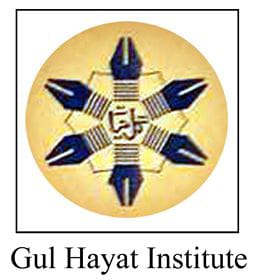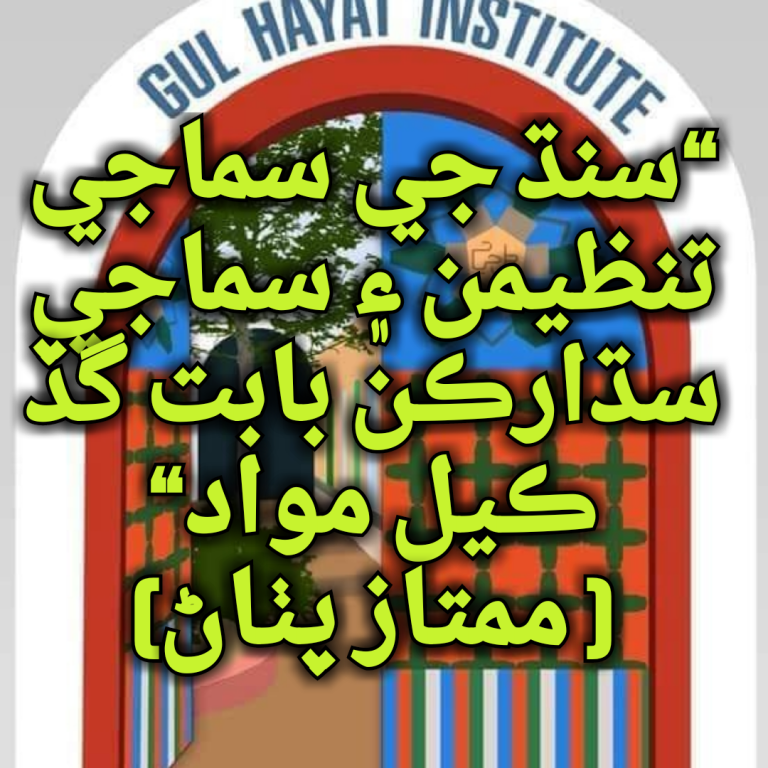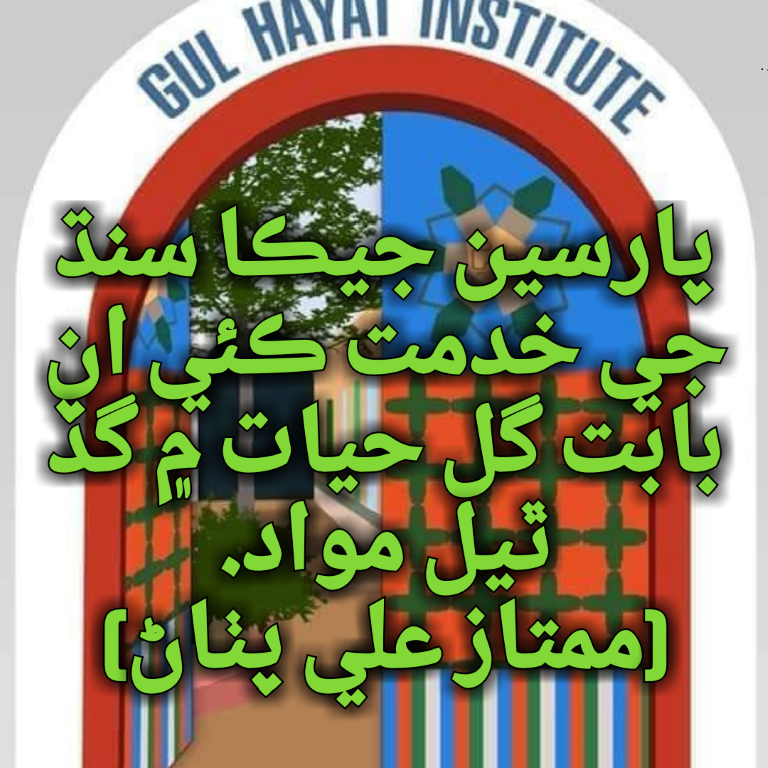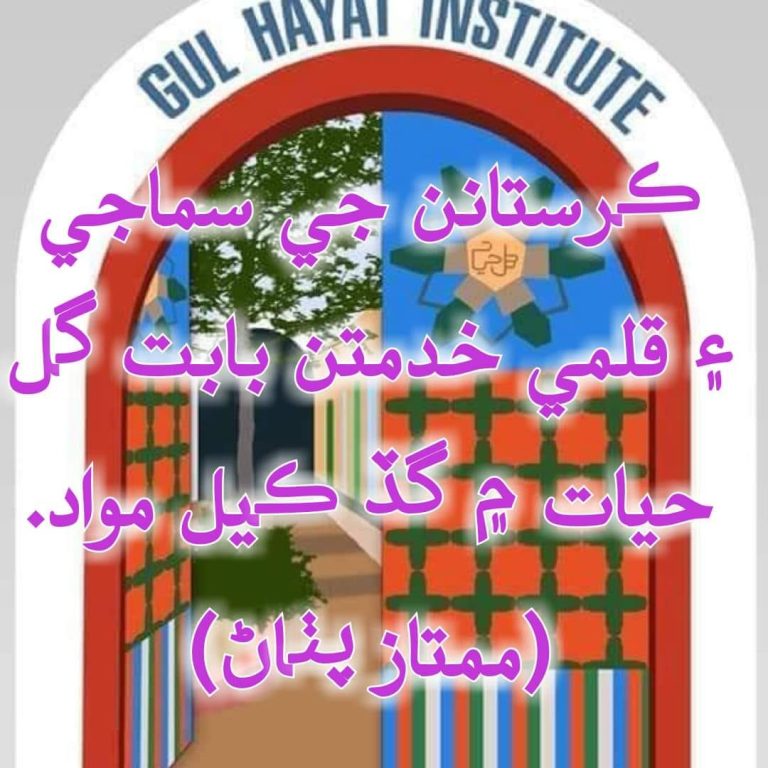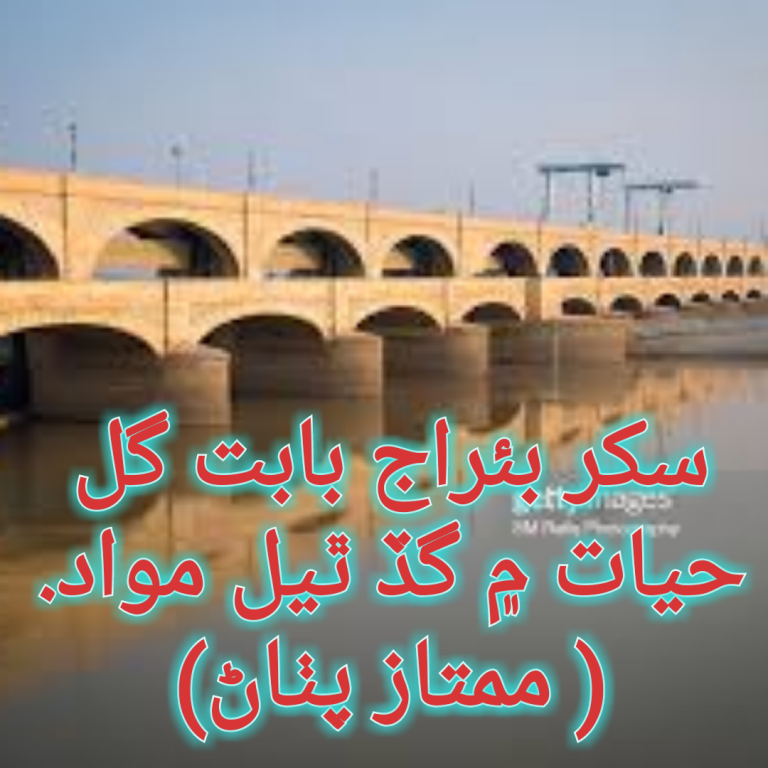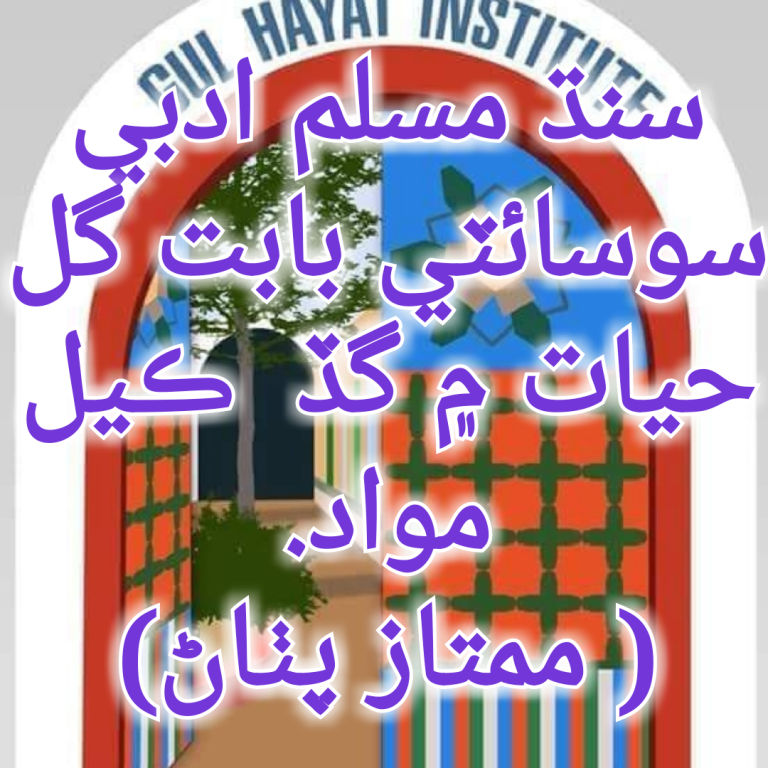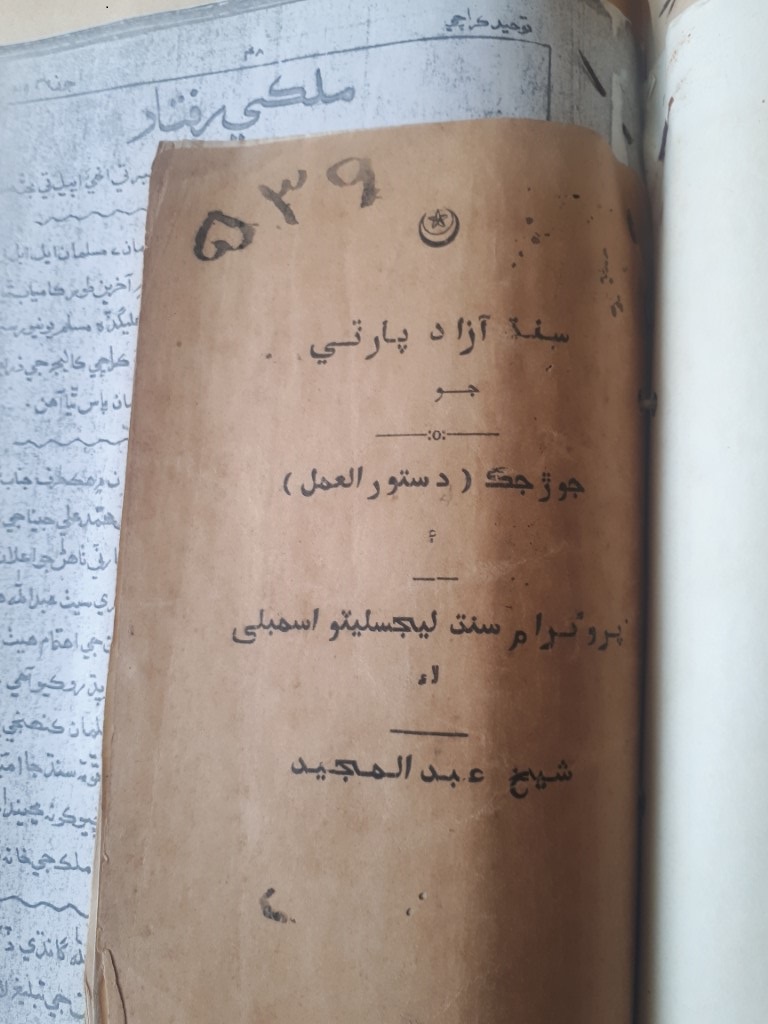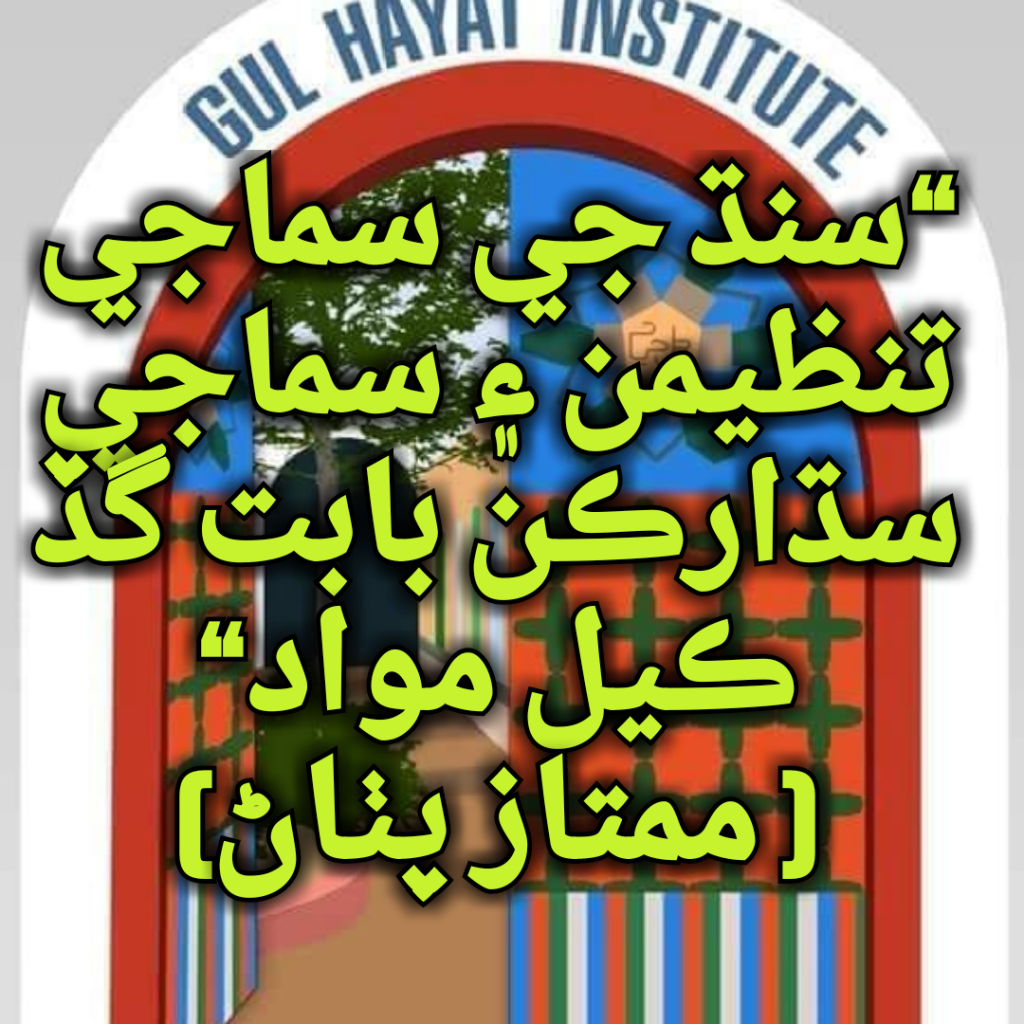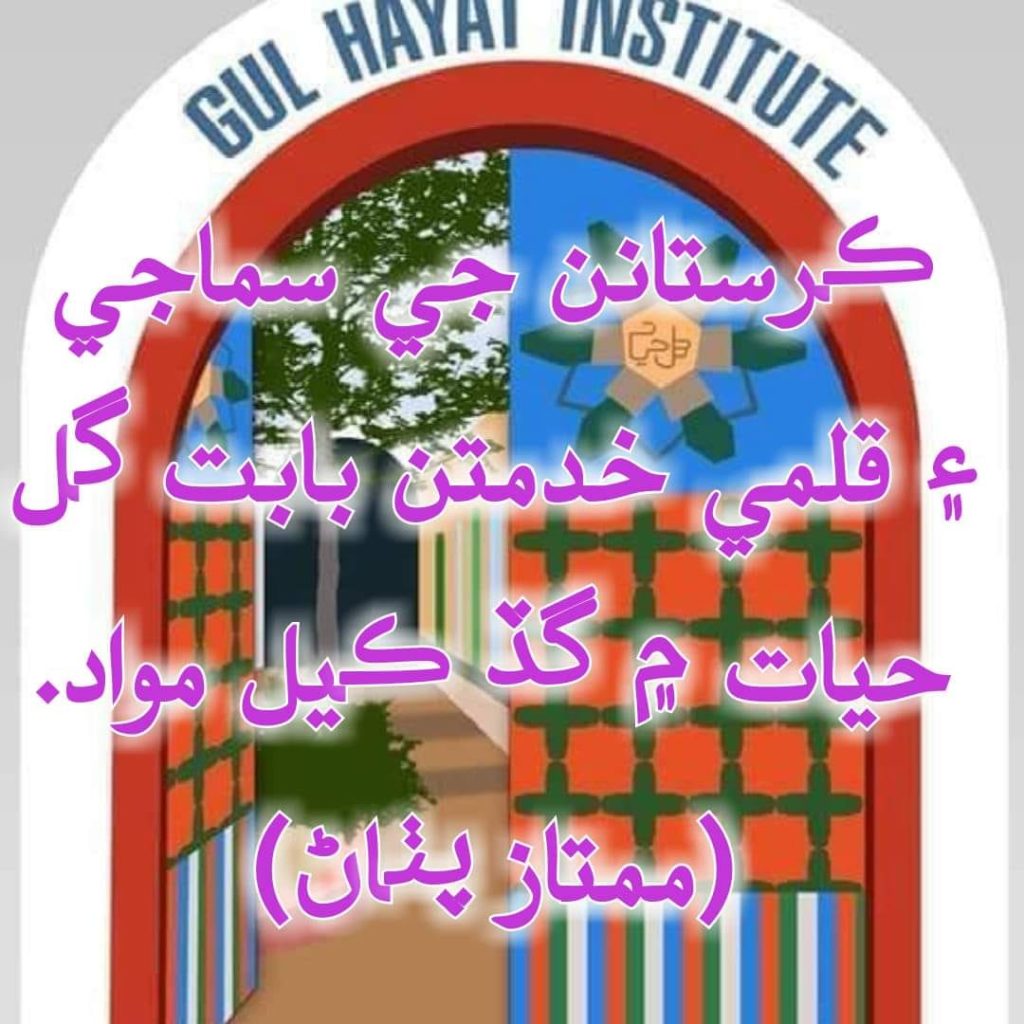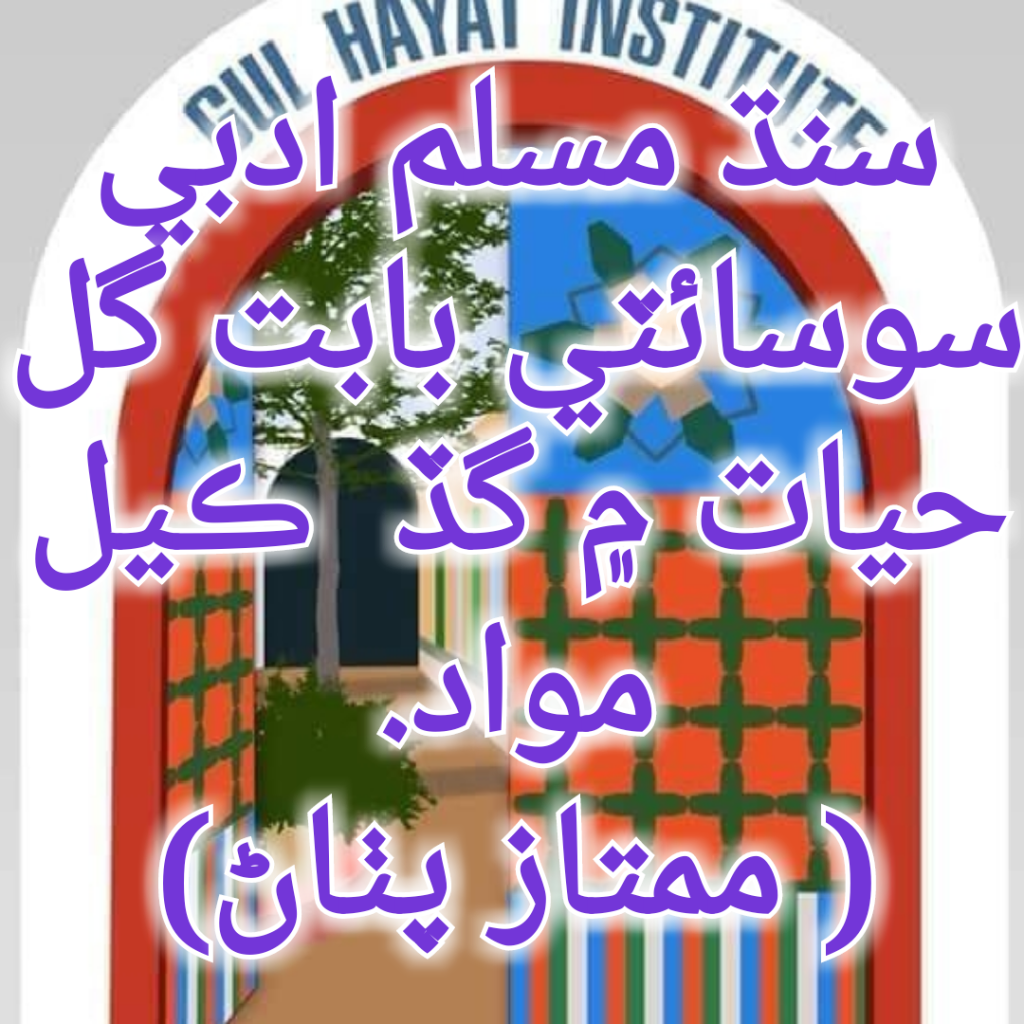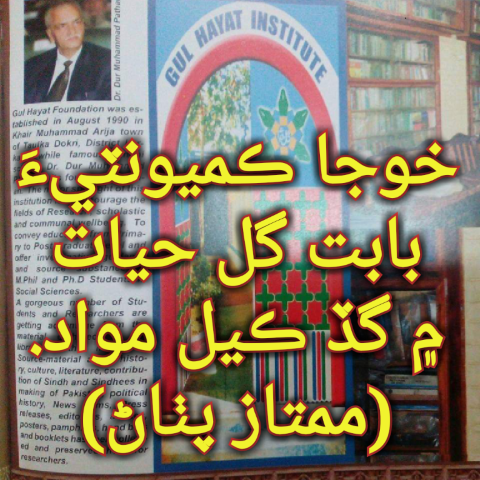SEVENTH SIND PROVINCIAL CONFERENCE
HELD AT SUKKUR (1920)
The first sitting of the seventh Provincial Conference which was to take place today at 12 noon came off an hour and a half later as much of the time of the prominent members was taken up in the discussion in the Khilafat question at an informal meeting of leading Hindu and Muhammadan delegates.
There appeared to have been some difference of opinion as regards the Khilafat question, most Hindu not being prepared to go the length proposed by Muhammadans. It is understood that after much discussion a compromise was arrived at. There were about 5,000 persons present including visitors of whom about 1,000 were Muhammadans. The special feature of this Conference was that there were about 500 peasant delegates for whom a fee of annas four was charged. There were also about 40 Muhammadan volunteers who were seen working in the pandal along with the Hindu volunteers. Among these present were the Hon. Mr. Harchand Rai , Mr. Jamshed, Mr, Bhurgri, Mr, Lalchand of Larkana, Mr. Murlidhar, Mr. Jeramdas , Mr. Hirdaram , Mr. Durgdas, Mr.Marriwalla , Mr. Sidhwa, Mr. Jethmal , Doctor Choithram, Swami Govindanand, Mr. Lokamal Chellaram and Mr. Santdas, Mr. Mulchand P., Mr. Bhojsing, Mr. Virumal, Mr. Vasmani, Mr. Jaswani, and Mr. Kishindas . After national and welcome songs the chairman of the Reception Committee, Mr. Viroomal Begraj read out his address in which he expressed his sorrow at the death of Diwan Pessumal Zoukiram, Chairman of the Reception Committee of the 1st Provincial Conference, and Mr. Himatsing, General Secretary of the 1st Conference and President of the 2nd Conference held at Hyderabad. He rejoiced to see many Muhammadan delegates at the Conference, who were now taking greater and greater interests in political matters. At one time pointed out, sycophants and title hunters stood outside the Conference gates to keep away the Muhammadans from joining the Conference. Things were changing and they were realizing in increasing measure that personal interests must be subordinated to the interests of the nation, and that to help their needy brethren was of greater value than hunting after titles and high Govt. posts. After thanking various persons who had made it possible for him to undertake the delicate duties of Chairmanship, he referred to the auto crated powers of the Commissioner, which he said must be substantially decreased. He condemned the action of the Government in issuing search warrants in April last against respectable persons of unimpeachable character. The prosecution against Messrs. Durgdas and Marriwala and Jethmal were unwise but he was proud to see that Sind could boast of political martyrs men who had suffered imprisonment for the sake of their country. It was after 10 years that 3 Sindhis were tried for sedition, which showed that the political life in Sind was not so vigorous. Their leaders unlike other leaders of the provinces were timid. He was glad to find a National College in Hyderabad and he hoped branches of the College would be established in different parts of Sind. In Government College the atmosphere was cramped and the students were prohibited from attending any political meetings. In spite of their help in the Great War, the Government put on the statute book the Rowlatt Act which was an insult to them. What followed the agitation against the Act he said was known to them. The ruthless murder of innocent people at Amritsar was a standing shame to the honour of the British. The regime of the Martial Law was too terrible to to be described. The Royal proclamation was conceived in a generous spirit but the men on the spot had not carried out fully the intentions of His Majesty. He expressed his joy at the release of Lala Lajpatrai, Lala Harkishin Lal, and others including their Sindhi fighters Messrs. Durgdas, Jethmal and Marriwala. He pointed out the difficulties under which Zamindars, Mukhis and Jagirdas were undergoing on account of the tyranny of the petty Government officials. The institution of the system of Honorary Magistrate ship had not remedied the evil, as those posts were given to persons who were Jo Hukmms of the government who would say that India should not get Home Rule, but if she should they should get the large share in the administration of their country. The Government accused their voters of corrupt practices but it did mind how the posts of Honorary Magistrate ship and Municipal Councillorship were being conferred on the people. Mr. Norton had declared that until the government did away with the system conferring titles the officials would never efficiently carry out the machinery of the government. For the idea of Home Rule they were great full first to Dadabhoy Narojee, and then to Tilak and Mrs. Besant. They had no control over their purse and in the budget a deficit of 19 crores was shown. They were undergoing great hardship on account of the system of Railway administration. The C.I.D. was persecuting the most respectable among them. He appealed to them to use Swadeshi articles for the economic prosperity of their country. The hardships of Income Tax were untold. Irresponsible officials were persecuting poor people, as was evident from the example of one Lakhi, a confectioner who was asked to pay Rs. 1,281, and in the appeal he had got the amount reduced to Rs. 86 only. Another man after the appeal had to pay only Rs. 75 when before it he was to pay Rs. 6,000. The Press Act a most harsh measure was condemned alike by the Moderates and Extremists. He expressed his satisfaction that securities were returned to some papers. Referring to the Khalifat question he said the whole India was now engaged in endavouring to bring about a just settlement of the question. The Turks should get Turkey for the protection of Muslims and others and should have suzerainty over the holy places. Arabia should get self government. He condemned the action of some Muhammadans who were secretly working against the Khilafat question. The demonstration of the 19th March was a testimony of the Hindu Moslem Unity. Austria was politically secure; Turkey therefore should not be broken to pieces. For securing the co-operation of the people, Press Act, Arms Act, Rowlatt Act, Indemnity Act and other repressive acts should be removed from the statute book. Indians should be given a predominant share in the administration of their country and should be freely admitted in Army and Navy. Rasai still continued to be a standing evil. Mr. Tilak and others were clearly saying that the Reforms were disappointing and unsatisfactory. Many English companies were getting facilities for carrying out their business enterprise. The Government was very clever in setting Moderates against Extremists. For the sake of prestige the Government was not remedying many wrongs. The speeches on cow protection of Maulana Shoukat Ali and others must stir the hearts of Hindu. Mahatma Gandhi, who had the indomitable courage of Napolean stood for non violence and he hoped in considering the measures to meet the exigency of situation created by the Khilafat and other question they will follow his principle of Satyagrah. In the end he closed his speech with the cry of Allaho Akbar and Bande Matram.
ELECTION OF PRESIDENT
After this Mr. Mulchand Pessumal rose to ratify the election of the President. Mr. Murlidhar of Shikarpur, Mr. Junijo of Larkana, Mr. Aminudin of Hyderabad, Mr. Gurdino mal from Mirpurkhas, Mr. Hotchand of Jacobabad, Mr. Jethmal of Hyderabad, and Seth Lalumal of Karachi one after another formally seconded the proposition, after which Seth Haji Abdullah Haroon took his presidential seat and was garlanded among cries of Allaho Akbar and Bande Matram. (The Daily Gazette, dated April 5, 1920 Page 10).
SECOND SITTING
The second sitting of the Provincial Conference came off this morning under the presidency of Seth Hajee Abdul Haroon and lasted for about four hours. The attendance at this session was much larger than what it was yesterday and every available space was occupied. A larger number of Muhammadans mostly peasants also were in audience. About 1,000 delegate’s tickets appeared to have been issued. The number of visitors far exceeded the usual number. At this sitting the following four resolutions were passed;
FIRST RESOLUTION
(a) This Conference places on record it’s most emphatic opinion that the maintenance of the present position of the Commissioner in Sind is inconsistent with the introduction of the principle of responsibility and powers of popular control and influence granted by the Reform Act and is against the vital interests of the province of Sind. It therefore strongly urges upon Government the imperative necessity, in the interests of the continuance of the Bombay Sind connection, of repealing Act V of 1868 and withdrawing all the powers delegated to the Commissioner in Sind whether under that Act or the Decentralization Act of 1914 which are at present in excess of those enjoyed by the Commissioners of other Divisions.
(b) This Conference appoints the following committee to prepare a representation in support of the above demand: Mr. Sandas, Mr. Jermadas, Mr. Lulla and Mr. Gopaldas.
This Conference also appoints the following deputation to wait upon His Excellency the Governor of Bombay with a memorial: Hon. Mr. Harchandrai, Hon. Mr. Bhurgri, Hajee Abdullah Haroon, Mr. Murlidhar, Mr. Bhojsing, Mr. Jeramdas, Mr. Jan Muhammad, Mr. Durgdas, Mr. Mulchand Pessumal, Professor Vaswani, Moulvi Abdul Ghafur, Mr. Pessumal from Nawabshah.
Proposed by Mr. Gopaldas, seconded by Santdas and supported by Abdul Majid and Jan Muhammad.
SECOND RESOLUTION
(a) This Conference regrets that the non Muslims of Sind have been given very inadequate representation on the Bombay Legislative Council under the Reform Act as compared with non Muslims in the Presidency and strongly urges that the non Muslim representation be increased from three to five members by doubling their rural representation in consideration of their great voting strength, the extensive areas of their constituencies and the fact that the non Mussulman minority in Sind deserves the same treatment as the Muslim minority in the Presidency proper.
(b) And in order to maintain the Muslim and non Muslim proportion fixed by the Lucknow pact and in view of the fact that the Muhammadans of Sind are under represented, one more seat be given to Muhammadans of Sind.
(c) The same committees as was appointed under Resolution, be appointed for the same purpose.
Proposed by Mr. Santdas, seconded by Mr. Murlidhar and supported by Dr. Nur Mahamud.
THIRD RESOLUTION
(a) This Conference most strongly condemns the attempts being made in South Africa and particularly the Transvaal to deprive the Indian settlers of the rights of property, trade and residence hitherto enjoyed by them and trusts that the Government of India will secure the repeal of the recently enacted legislation and otherwise ensure the protection of the Indian settlers in South Africa.
(b) This Conference is of opinion that the Anti-Indian agitation now going on in East Africa is utterly unscrupulous and trusts that the Government of India will safeguard the rights of free and unrestricted emigration from India to East Africa and the full civil and political rights of the Indian settlers in East Africa including the East Africa territory conquered from Germany.
(c) This Conference has learnt with apprehension news about recent riots in Fiji and to ascertain the real causes of the discontent the Conference urges upon Government of India to urge Indian representation in the Commission of Enquiry appointed by the Fihi government.
(d) This Conference views with alarm the recent revolutionary changes from the rupee to the Sterling standard introduced in the currency system of East Africa, as they are sure to lead to economic ruin to the Indian community there.
Proposed by Dr. Choithram, seconded by Mr. Mulchand P. and supported by Lalchand Advani and Dr. Ahmed.
FOURTH RESOLUTION
This Conference urges the Government to take early measures to repeal the Press Act, the Seditious meeting Act and all other repressive legislature as the continuance of such legislature on Statue Book is inconsistent with the new era promised in the Royal proclamation.
FIFTH RESOLUTION
This conference lodges its most emphatic protest against the unjustified deportation of Mr. Horniman and strongly urges the Governor of Bombay and Viceroy to order cancellation of the order of deportation of Mr. Horniman and strongly urges the Governor of Bombay and Viceroy to order cancellation of the order of deportation and grant him passports for his immediate return to India.
Proposed by Hon. Mr. Harchandrai, seconded by Mr. Kishindas.
In moving the first resolution with regard to the powers delegated to the Commissioner in Sind, Mr. Gopaldas Jhamatmal traced the history of Sind administration from the time of the British Conquest of Sind when the province was placed under a separate Governor to the present day.
In course of time with the improved communications it was placed under the Government of Bombay. Owing to great distance however it was found necessary in 1868 to pass an Act by which all the powers of the Governor could be delegated to the Commissioner in Sind. After the report of the Decentralization Committee almost all the powers had been delegated to the Commissioner. These powers, if not withdrawn, would loose the beneficial effect of the recent reforms.
Mr. Santdas in seconding the resolution said that powers were delegated to the Commissioner under 78 Acts. The speaker had gone through the correspondence which had led to the passing of the Act 5 of 1868. In those days the Commissioner had not even the power of transferring prisoners from one jail to another. This was the reason on which the recommendation for the passing of the above act was based. Gradually other powers were given till at last the Commissioner now enjoyed almost all the powers of the Governor.
Mr. Jonejo, of Larkana in supporting the resolution declared the Commissioner with such extensive powers as a calamity for them. He could make and unmake any body. He could raise any body to heaven and hurl down any body to hell. He referred to the unjustified searches of Hon. Mr. Bhurgri and other respectable people in Hyderabad. He referred to the treatment received at the hands of Government by Pir Pagaro and sympathized with the Hurs who where shut up in one place. Referring to Zamindars he said that they were completely at the mercy of the Commissioner and that accounted for the presence of so few Zamindars at the Conference. The Commissioner he said, enjoyed more powers than even King George, V, himself. In conclusion he said that such powers possessed by the Commissioner he would prefer leaving the place and living elsewhere.
In moving the second resolution regarding the inadequate representation of the non Muslims of Sind in the Bombay Legislative Council, Mr. Santdas said that in accordance with the Congress League Pact at Lucknow 46 seats were assigned to non Muslims and 27 to Muhammadans of which 13 Muslim seats were assigned to Sind Muslim and only 3 to non Muslims. This had placed the Sind non Muslims at a great disadvantage when compared with the non Muslims of the Presidency. They did not want to disturb the distribution already made but suggested the creation of two more seats for Hindus and one for Muhammadan as the Act gave powers for the increase of the numbers of seats to the extent of 5%
At this stage a Bania created a scene by entering the Pandal and beating his head said that he had been unjustly treated by the Income tax authorities who had got him handcuffed and brought about his ruin. He was asked to sit down and the President ruled that he should be heard at the time of taking Income tax resolution.
Mr. Murlidhar of Shikarpur said that he had seen the Secretary of State for India and Lord Sinha in this connection and had received an encouraging reply. They had both admitted the justness of the claim but wanted some representation from the public. Last week the speaker said he had seen the Reform Commissioner Mr. Seddon who raised several objections which were not so serious.
Dr. Nur Mahomad in supporting the resolution said that the Hindus had done them a favor at the Licknow Congress League Compact and they were under a deep debt of obligation to them that they had assigned to them one third the total number of seats in Councils. He was not yet quite sure whether the Muhammadan community in view of the circumstances brought about by Khilafat question would participate in the coming elections but personally he would not object to any Muslim seats being given to Hindus.
In moving the third resolution regarding the Indians in Africa, Dr. Choithram reviewed the whole situation from the very beginning and said that they were having recourse to queer pretext for excluding the Indians from Africa. The act laid down that undesirables were to be excluded but everybody knew that it will be applied to Indians. In the end he suggested that if the Colonies did not come round, the British Government should declare war against them and the Indians would heartily so-operate with them. Before passing the above resolution Mai Suraswati a Mahratta lady of Karachi sang a beautiful song reviewing the economic condition of India which touched the hearts of the whole audience.
In moving the fourth resolution regarding the repressive measures about the press, Mr. Bhojsing referred to the Press Act of 1910 when he said an assurance was given that the High Court will have adequate powers over the acts of the Executives. The High Courts however had declared that their hands were tied and they could not interfere in these matters. He declared that the present was a suitable time for abolishing all the repressive measures.
Swami Goverdanand in seconding the resolution compared the Editors of papers with Rishis who did great services to the public. But for these repressive measures incidents like the Jallianwalla tragedy would never have occurred. Such things could only happen when the press was suppressed at the time. Mr. Bunga in supporting the resolution said that being a Journalist himself he could speak from personal knowledge. He said that the Press Act was most iniquitous in working as it differentiated between Indians and Anglo Indian papers. It also made distinctions between papers that expressed moderate view and those that voiced forth national opinions.
Mr. Jethmal supporting the resolution said that Bureaucracy was responsible for this state of things. They were proving rebellious to their King Emperor who had enjoined them to work in co-operation. Security had been returned to many papers but with held from some who fearlessly voiced forth nationalist views. The papers to which the security had not been returned were being looked upon with great respect and such as were doing service to the country.
The last resolution regarding the deportation of Mr. Horniman was moved by the Hon. Mr. Harchand Rai. Only two charges leveled at Mr. Horniman by the advocates of government action were sati factionary refuted by Mr. Horniman himself and it was rather unmanly on the part of Government to have stabbed him in the dark without giving him an opportunity of clearing himself. Mr. Kichindas Jharmrai seconded the resolution which was passed. The third sitting of the Conference takes place tomorrow at 1p.m.
SINDH PROVINCIAL CONFERENCE:
LAST MEETING
The third and last sitting of the Provincial Conference which was to be held at 12 noon had to be postponed to 2 p.m. owing to prolongation of the meeting of the Subject Committee in the morning. The attendance at this meeting was not as large as at the first two sittings because of the absence of almost all the Muhammadan delegates and visitors who were at the Muslim League meeting which was being held at the same time. The pandal was however full except a few galleries at the extremity which were unoccupied throughout the sitting. This year, proper attention does not appear to have been given to keep order in the pandal with the result that several visitors were found in the delegates seats and several boys under 21 were also there so that some delegates proper at to days sitting found that their seats had been occupied and there were no more seats available in that block. Several Sukkur people were found occupying Karachi and Hyderabad blocks which were nearest to the platform. The volunteers could not enforce proper discipline as they appeared more anxious to seat themselves whether in chairs or on the ground near the speaker than stick to the posts assigned to them. The proceedings commenced with the singing of the national song after which the following resolution was moved by Mr. Santdas of Hyderabad.
REPRESSIVE POLICY
“This Conference expressed its severe condemnation at the repressive policy pursued in Sind by Mr. H. S. Lawence and other officials in Sind in April last.
“This Conference is further of opinion that the above official took advantage of the critical situation which had developed in other parts of India, for the purpose of striking a blow at all political workers in Sind, by prosecuting some and instituting searches and arresting others on palpably false allegations.
This Conference regrets that no action has been taken against the officials concerned and urges upon the Government of Bombay the absolute necessity of taking actions against Mr. Lawrence and such other officials as were concerned in the agitation and carrying out of that repressive policy.”
Mr. Santdas in moving the above resolution said that action taken against the political workers at Hyderabad was based on the police report made on the 26th April with respect to a plot at Mr. Bhurgri’s bungalow on 28th March, in connection with the closing of shops by force. When however it was satisfactorily shown that Mr. Bhurgri was out of Hyderabad on that day the officials concerned were in affix and had eventually to acknowledge their mistake and withdraw the cases against all. The matter, the speaker said had reached the ears of Mr. Montagu and he was fully informed of the whole case of Mr. Bhurgri.
Mr. Abdul Karim who seconded the resolution said that when poor people were tried for offences alleged to have been committed by them why should the officials whose duty it was to safeguard their property and person, escape punishment if they were found guilty. Mr. Sidhya in supporting the resolution gave his personal experience regarding the search of his house and said that he was credibly informed that the same Mr. Lawrence was coming back to rule over the province in May next and therefore they should protest against his being here where he had proved a failure. The resolution was unanimously carried.
LOYAL EXPRESSION
The next resolution moved with regard to offering thanks to His Majesty the King Emperor for his gracious proclamation of 23rd December 1919, which unanimously passed.
JALLIANWALLA FUND
In moving the next resolution urging all the Sindhis to do patriotic duty in subscripting liberally towards the Jalianwalla Bagh fund. Mr. Lokamal Chellaram made a stirring speech with regard to the Jallianwala tragedy and made an appeal for funds in suitable terms. Mr. Narsinglal who seconded the resolution stated that about 1,200 had been killed and about 3,600 wounded in the Jallianwalla tragedy and it was their imperative duty to do something in memory of those that had fallen when nothing was done to punish the perpetrators for their unmanly conduct. Mr. Choithram in supporting the resolution said that their object was not to perpetrate the memory of hatred against the British or General Dyer but to keep memory of those that had fallen. About ten lakhs of rupees, the speaker said, were required of which Sind was expected to contribute Rs. 50,000. He announced that Mr. Jamshed Mehta, MukhiJethanand, the Hon. Mr. Bhurgri and two others had subscribed Rs. 1,000 each and made an appeal to the wealthy sethias and others to subscribe Liberally. The appeal received a hearty response and about Rs. 15,000 was subscribed on the spot. Hon. Mr. Bhurgri, and Seth Hajee Abdul Satar each subscribed Rs. 1,000. Messrs Murlidhar, Rejhumal Lahori and Hirdaram each subscribed Rs. 500. Seth Khemchand, Mr. Suganlal, Seth Hajee Satar and Seth Sundersing each subscribed Rs. 250. Seth Madandas Mendo, Seth Girdhridas, Seth Chellasing each subscribed Rs. 20. About a dozen subscribed Rs. 150 or 151 each. About 20 subscribed Rs. 100 or a little each. The number of those that subscribed under Rs. 100 each was also considerable. A hat that was sent round the pandal also brought in a good sum. A medal of Mrs. Annie Besant worn by Doctor Choithram was offered by him for the Jallianwalla fund. It was put to auction and knocked down of Rs. 701 to Seth Ratanchand Virbhandas Jumani. A Sind work boy from Hyderabad gave away his watch towards the fund. It was auctioned and fetched Rs. 225. Mahraj Gandi’s Secretary ring was likewise sold for Rs. 150. A poor hari gave away his stick which fetched Rs. 50 in the auction. A photo of leaders of India hung up at the entrance of the Pandal was sold for Rs. 125 to Mr. Hirdaram who again presented it to the National College. One shoe maker by name Dhanji paid Rs. 6. Several boys also paid small sums and some of them gave their gold buttons.
One girl who was present there took out a gold earning from her ear and offered it to the fund. This fetched Rs. 125 at the auction. The audience expressed strong desire to have all the things received put to auction but as much of the time of the Conference had been taken up in the work of collection, Mr. Santdas was called upon to read the following resolution from the Chair as they were fully discussed in the subject Committee and were of non-contentious character, and all were earned unanimously
RASAI
The Conference most emphatically protests against the inordinate delay in the publication of the report of the Rasai Committee appointed in March 1918 and strongly urges upon Government, the imperative necessity of the immediate publication of the report and the recommendation of the Government as any further delay will only strengthen the popular belief that Government is not serious in its attitude against the evil custom.
(b) This Conference regrets that even during the last two years which the report of the inquiry and Governments decision have been awaited for Rasai, Lapo and Chher have continued unabated.
LABOUR UNION
This conference urges the District Congress Committee in Sind to promote labor unions throughout the Province with a view to improving social, economic and political conditions of the laboring classes and securing for them a fair standard of living and a proper place in the body politic of India.
LANDLORD AND TENANT
That the Committee consisting of Hon. Mr. Bhurgri, Mr. Santdas and Mr. Gunshamdas be appointed to enquire into and report on the relations now existing between the zamindars and haris of Sind and recommend the measure that may be necessary for more equitably readjusting their relations.
COW SLAUGHTER
That this Conference tenders its hearty thanks to Muslims of India and particularly the Muslims of Sind for their resolution to respect the wishes of their Hindu brethren by avoiding cow-slaughter.
BOMBAY SIND RAILWAY
This Conference earnestly appeal the Government of Bombay to take very early steps to arrange a direct Railway connection between Bombay and Sind either through Cutch or via Nagarparkar and Deesa as a much shorter railway route than the existing one vitally affects the political and economic interests of Sind.
Translation of Vernacular Newspaper.
This conference is emphatically of opinion that in view of the fact that the Government of Bombay is not in adequate touch with public opinion in Sind. It is essential that the vernacular papers of Sind be translated in the office of the Oriental Translator at Bombay and submitted by him to the Bombay Government and the Commissioner in Sind.
ROWLATT ACT
This Conference is firmly of opinion that there would be no real peace in the country until the Rowlatt Act which has caused unprecedented feeling is repealed and therefore earnestly asks the Right Honorable the Secretary of State for India to advise the viceroy to take immediate steps to have it repealed.
DEPORTATION
This conference strongly protests against the action of the Commissioner in Sind for deporting three Indian gentlemen of Karachi, born in Indian States but residents of British India for long period, for their identifying themselves with the Satyagarha Movement, classing them as foreigners. This conference demands from the Government of India immediate repeal of such powers of the Commissioner in Sind and further to compensate those three gentlemen for all losses borne by them through such misuse of powers by Mr. Lawrence, the late Commissioner in Sind.
RAILWAY PASSENGER’S TROUBLES
That this Conference brings to the notice of the Railway authorities the inconveniences and hardship which the 3rd class passengers from whom the largest portion of the Railway revenue is derived have to suffer owing to:-
(a) Habitual overcrowding in Railway trains.
(b) Lack of several necessary facilities for traveling and of sanitary conveniences.
(c) Disregard of Railway servants of their duties towards the public.
(d) Rough, insolent and impolite behavior of some of the Railway servants towards Indians in general and 3rd class passengers in particular, and that this Conference requests that early action may be taken to remedy these grievances and it further urges that Government should see that no Railway body has the right of reserving compartments for only certain section of a community such as Europeans and Eurasians and Anglo Indians.
(e) This Conference further urges that not more than half the total authorized number of passengers allowable to travel by day should be allowed to travel by night in the same compartments.
DOCK PASSENGR’S GRIEVANCES
This Conference views with great dissatisfaction the very bad treatment meted out to the passengers of the B.I.S.N. Co at the Cutch and Kathiawar Coast ports and urges the Government of Bombay to appoint a Committee to look into the grievances and to redress them at an early dates.
RAILWAY FARES
This Conference urges the Government of India to immediately reduce the Railway fares which had been increased during the war to pre war level and to reintroduce the system of Return ticket.
KARCHI DELHI RAILWAY
This Conference requests the Government of India to take the construction work of the Karachi Delhi Railway at a very early date.
This Conference brings to the notice of the Agent, North Western Railway, Lahore that although the authorities sanctioned in the month of February to attach a through compartment of First and Second Class for Karachi Delhi and vice versa, the practice is not regularly followed and it is hoped that this will be given effect to strictly.
Higher Posts in Bombay Government Department.
This Conference views with great dissatisfaction the Government of Bombay’s decision in showing undue favoritism to persons of European Parentage in the matter of appointments to the Public Services in this Presidency and believes that unless this racial distinction is removed the new era would not produce the desired effect in the country.
INDUSTRIAL DEVELOPMENT
This Conference urges upon the people of Sind that the economic improvement of country demands a practical propaganda for the Industrial Development especially of artisan classes and therefore earnestly urges the adoption of Swadeshi.
AMNESTY
This Conference strongly protests against the inadequate effect given to the amnesty clause in the Royal Proclamation and urges Government that all persons convicted of any offence connected with the political movement in India or interned or deported for political reasons should be immediately released and granted full liberty of action and movement, and in case where release is not considered consistent with public safety the grounds for such contentions be published. This Conference further urges the All India Congress Committee to organize agitation in the country and take other suitable steps to make Government give full effect to the intention of the proclamation in this behalf.
KHILAFAT
This Conference is of opinion that an alarming situation will arise in India if the Turkish Peace settlement is not compatible with the demands made by Moslems of India and requests the All India congress Committee and all Indian Moslem League Council, and Central Khilafat Committee to consider what steps should be taken in the event of failure of a satisfactory settlement of the Turkish problem.
ROYAL PROCLAMATION
This Conference tenders its respectful thanks to his Majesty the King Emperor for his Gracious Proclamation dated the 23rd December, 1919 and wholeheartedly welcomes the announcement of the Prince of Wales visit to India and trusts that by the time of the Prince’s visit to our Country the question of the Khilafat will be so amicably settled as to enable millions of His Majesty’s subject in India to give him whole hearted reception.
INCOME TAX
This Conference realizing the good intention of the Government of India orders with respect to the right working of Income tax laws, is of opinion that its working still continues to cause great dissatisfaction and discontent in many places in Sind and urges the authorities to openly issue such instructions to the Income Tax Collectors and Commissioner to administrate those laws in just and fair spirit.
2. This Conference is of opinion that the working of the Income Tax Act will be greatly frustrated if in the event of Income Tax Collector not accepting the figures of D. Form, the decision of assessment be not entrusted to the arbitration of three non official persons, one elected by the Collector and one by the Assesses and a Sirpunch elected by the two arbitrators.
3. This Conference is further of opinion that the present system of the appellate authority having no other agency of advice but that of Income Tax Collector is unjust and therefore demands that an advisory Board of 3 non official persons be appointed at each place to advise the appellate Commissioner just as is done in matters of rent Act appeals.
4. This Conference protests against un-business like and discourteous treatment accorded to assesses during their attendance in the Income Tax Office and urges that adequate provision should be made for the comfort of the assesses and they should be treated with courtesy and consideration and all possible facilities be given to avoid waste of time caused by prolonged attendance and frequent postponements.
INDIANS ON N.W.R. STAFFS
This Conference notes with regret and bring it to the attention of the N.W.Ry. Administration and the Railway Board that there are no Indian employees in the higher grades of services of the Loco Department and other services e.g. Loco Superintendents, Assistants and even Foreman of different shops and urges on the authorities concerned to take immediate steps to open the appointments to Indians freely.
This Conference places on record its emphatic protests against the invidious racial distinction observed by the Railway authorities in the grant of pay to Europeans, Anglo Indians, Native Christians and Paris and Indians holding the same appointment and demands the immediate abolition of the same.
That this Conference tenders its hearty thanks to the Members of the Congress Sub-Committee for their hard and earnest work in making through enquiries and a report regarding the martial law affairs in Punjab for the information of all people.
That this Conference offers its highest respects to Mahatma Gandhi, Pandit Madan Mohan Malya and Pandit Motilal Nehru for their great services to Punjab in its extremely difficult days.
That this Conference is of emphatic opinion that Indians born in Indian States, residing in British India should receive all privileges under the new Reform and Scheme, and requests the Government of India to extend to them all those privileges of the Indians.
MUNICIPALITY EDUCATION
This Conference urges all Municipalities to frame schemes of Primary free and compulsory education and further urges the Municipal Councilors to find means for working such schemes if need be by extra taxation and requests the public to support such scheme and extra burden of such taxation whole heartedly and where adequate funds are not available to the Municipalities of cities which can not bear additional taxation no maximum limit should be fixed to the proportion of grant-in-aid by Government.
PUNJAB QUESTION
This Conference is of opinion that whilst Mob excesses, although committed after grave provocation were worthy of condemnation, the deliberate and calculated massacre without warning by General Dyer, of innocent, unarmed and otherwise defenseless people at Jalianwala Bagh was an unexampled act of barbarity and hopes that the Government of India and the Home Government will take such steps as will render impossible a repetition of such barbarities committed by responsible officers in the Punjab during period of martial law and hopes that recommendations made by the Punjab Sub Committee of the Indian National Congress will be carried out in their entirety.
(b) That all the official offenders should be immediately cashiered and impeachment or criminal proceedings be forthwith instituted against them.
(c) That an all India Deputation should forthwith proceed to England to place before the British Democracy and His Majesty’s Ministers, the true facts of the Martial law regime and to press for the carrying out of the Indian wishes.
(d) That the persons convicted with the last April disturbances not yet released be immediately released.
HONORARY MAGISTRATES
That in the opinion of this conference the system of appointing Honorary Magistrates and Benches on the recommendation of the Executive Officers and police has proved a failure and that in future Honorary Magistrates and Benches should be elected by the people as the Municipal Councilors are elected.
RENT ACT
That this Conference thanks the Government for introducing Rent Act at Bombay, Karachi, and Calcutta etc. and urges its extension for a further period of 2 years and also at other places of India wherever demanded.
BARRAGE SCHEME
This Conference urges that the Government should not acquire mosques, cremation grounds, and Gowshala and Goua rest house at Sukkur for the purpose connected with barrage.
ROBIN HOODS OF INDIA
The resolution about Hur settlement was proposed by Mr. Jonejo, Bar-at-law of Larkana. He said that thousands of his co-religionists, men, women and children who had committed no actual offence had been confined in what were called settlements or enclosures. There they were treated as if they were animals. It was monstrous to deprive them of their liberty and other human rights simply because they were Hurs. Mr. Santdas Mangharam, pleader of Hyderabad, Sind, in seconding the resolution said that the Hurs were confined under the Criminal Tribes Act. Lately in the time of Mr. Lucas, Commissioner in Sind. Lots of Hur families had been deported to Ahmednagar where they were under similar restraint. It was quite wrong to punish people against whom there was no regular charge. Those guilty of any offences may very well be treated with severity but not the others. Children must not be condemned because they were born of their parents. Mr. Murlidhar, pleader of Shikarpur, moved an amendment proposing the following committee to enquire into the question and report; Hon. Mr. Bhurgari, Hon. Mr. Harchandrai, Messrs. Hirdaram Mewaram, Jethmal Parsram, Jairamdas Doultram, Santdas Manghara, pleader Jonejo and Mukhi Jethanand of Hyderabad Sind. He said that the Hurs were confined for the security of life and property of the people and not of the officials. The Government acted from good motives and opened schools for them, and they were permitted to go out to their cultivation. So far as he knew they were a dangerous Criminal Tribe who committed murder and theft as their profession. But the speaker only suggested a committee of enquiry which he taught would establish the un safety or letting these people at large. Seth Lokamal Chellaram of Karachi seconded him and spoke of those terrors of Thar, Bachoo Badhshah and Piroo Vazir. Mr. Jethmal Parsram said that he knew something of Hurs and had even lived among them but they were not such a bad lot. There was a question of principle involved in this question. The Conference was passing resolution against the deportation of Mr. Horniman and the expulsion from Karachi of three Kathiawari gentlemen. The Government said they were dangerous but there was nothing definite alleged against them. In the same way the Hurs must not be condemned because of general charge. He traced the pedigree to Main Hur who had been hired by Yazid to murder the Imams Hassan and Hussein but who fought for the latter as soon as he saw them. Some spoke of the Zulum (tyranny) practiced by the Police kept in charge of the Hur settlement. He was however not against the appointment of Mr. Murlidhar’s committee, Mr. Lalchand Jagtiani, teacher, New High School, Karachi said that he had lived as a boy among Hurs and had mixed with them. Some were no doubt thieves and murderers but they had their good qualities. In Europe such men would be educated and turned into good citizens. He referred to Robin Hood in this connection. Eventually the amendment was carried. The next resolution about the impeachment of the Viceroy and Sir Michael O ’Dwyer and General Dyer was moved from the chair and passed unanimously.
NEW COLLEGE
After half an hour’s recess the Conference met again at night fall and the invitation given by Mirpurkhas delegates to hold the next conference there was accepted. The 20th resolution was about location of the proposed Government Arts and Agriculture College on which there was a somewhat warm discussion. Mr. Murlidhar moved that the Colleges be located in Upper Sind where there was greater need for them as Hyderabad Sind was near Karachi and had a National College already and was moreover more advanced. Hon. Mr. Harchandrai in seconding said that Hyderabad students could afford to go to Baroda, Bombay and Poona even though they had a College at Hyderabad, Sind. He was of opinion that the need of Upper Sind was greater. Not only Upper Sind delegates who were undoubtedly in a great majority, wanted the College in their midst but Karachi delegates and even a few Hyderabadi delegates supported them. Mr. Lalchand A. Advani moved an amendment that a committee of the following gentlemen be appointed to report within a month where the College should be; Mr. Murlidhar, pleader, Mr. Mulchand Pessumal, Mr. Viroomal Begraj, Mr. Bhojsing Gurdinomal, Mr. Kishindas Jhamraj, Raj Bahadur, Mr. Bulchand Dayaram, Mr. Khemchand Ambritrai and Hon Mr. Bhurgari. He said that he had purposely put five Upper Sindhis out of nine members.
He would not mind if the decision was in favour of Upper Sind. Mr. Gopaldas Jhamatmal seconded the amendment and said that it was not proper that a question like this which was between one district and another should be taken up at a provincial conference held in one of the districts concerned which necessarily had a large preponderance of local delegates. He would have opposed the bringing up of such a question at the Hyderabad Session. Mr. Santdas moved another amendment that the question be simply dropped. He was not for a Government College at all. But here there was question between two rival claimants; Mr. Jamshed N.R. Mehta regretted the “tug of war” between Hyderabad and Upper Sind. only one College was being given and Lower Sind would do well to give in. Mr. Viroomal Begraj said he was pained Mr. Mehta’s use of the words “tug of war”. He was sure there was no such conflict. He personally would not send his boys to a Government College, but as Upper Sind needed a College badly, he would appeal to Hyderabadis with all earnestness to give up their claim. Mukhi Jethanand said that he was speaking as a Sindhi. He would personally not mind asking Hyderabadis in favour of Upper Sind but here all thought that this Conference should not take up this question. Votes then taken and the proportion was carried by an overwhelming majority. Hereupon Mr. Gopaldas J.A. left the Conference in disgust.
REFORM’S RESOLUTION
The last resolution was about the Reforms. It was moved by Mr. Durgdas Advani and it said that the Reforms were inadequate, unsatisfactory and disappointing and was on the Congress lines. It proved the cause of great disagreement in the Conference which broke up in the greatest disorder. The President said that four amendments had been handed to him and the discussion would be very long. It was a late hour already. He and many others had to leave by 10-30 p.m. train and they could also not stay for the next day having already reserved their berths. He suggested therefore this question should be dropped. At once there was a storm of indignation for which there were several causes. The most ardent followers of Mr. Tilak alleged that this was a device of the followers of Mrs. Besant. Why was this resolution not brought up earlier? Why could not the delegates stay a day longer? The Muhammadans who were dissatisfied with the resolution of the Conference about the Khilafat question and the welcome of the Prince of Wales sided with the Tilak party. The President was openly insulted and accused of partiality. There was great noise and commotion. Hurriedly the chairman of the reception committee, the very popular Mr. Viroomal Begraj moved a brief vote of thanks to the chair and Mr. Lokamal Chellaram seconded him. Then there was noise and disorder again and bitter recrimination and the president and other office bearers left. Mr. Tilka’s followers then went about among the audience and said that Tilak had desired that the Conference should pass a resolution on the Congress lines and they wanted the delegates to stay on and pass the resolution by electing another president for the time. This went on for some time when the captain of volunteers requested all to leave the pandal as the furniture had to be checked and returned the next morning and the Police Superintendent had given the ground on condition that the pandal would not be given to any one else without his permission. The gentlemen who already defied the chair wanted at first to defy the volunteers but Mr. Durgdas said that the meeting should be held outside or in the Muslim League pandal. Then the people began to go out. The protest meeting was then held in the open, Mr. Durgdas being elected Chairman and less than one hundred people being present. The resolution about the Reforms was adopted. Mr. Zafar Ali Khan of Delhi who had come down from the Punjab that morning in connection with the Khilafat movement was present at the meeting with several Muhammadans and supported the resolution strongly. Swami Govindanand took the most active part in the protest.
The material/data/information can be provided on request
